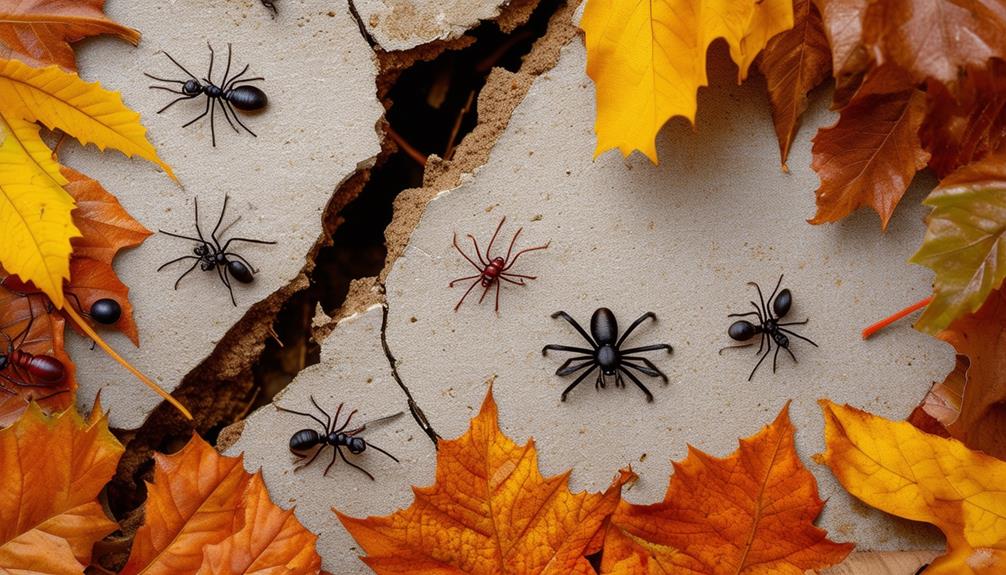Mice infestations can pose significant problems in both residential and commercial settings, leading to property damage and potential health risks. As a result, it becomes crucial to find effective and humane ways to deter these rodents. One approach that has gained attention is the use of scents that mice find unpleasant. Understanding the scents that mice hate can help property owners take proactive steps in preventing and controlling infestations.
In this article, we will explore five scents that mice are known to dislike, including peppermint, ammonia, cayenne pepper, mothballs, and eucalyptus.
Peppermint is a scent that is commonly known to repel mice. The strong and refreshing aroma of peppermint is highly displeasing to these rodents and can help deter them from entering a space.
Similarly, ammonia has a pungent smell that mice find repulsive. By placing ammonia-soaked cotton balls or rags in areas prone to infestation, property owners can create an unfavorable environment for mice.
Additionally, cayenne pepper, with its spicy and intense scent, can serve as an effective deterrent. Sprinkling cayenne pepper powder in areas where mice are likely to frequent can discourage their presence.
Another scent that mice dislike is mothballs. The strong, chemical odor emitted by mothballs is known to repel rodents, making them an effective tool in deterring mice.
Lastly, the fresh scent of eucalyptus, often found in essential oils, can also help keep mice away. By diffusing eucalyptus oil or placing eucalyptus leaves in strategic locations, property owners can create an environment that mice find unappealing.
By understanding and utilizing these scents, individuals can take proactive measures to deter mice and protect their properties from infestation.
Key Takeaways
- Peppermint, ammonia, cayenne pepper, and mothballs are scents that mice dislike.
- Peppermint is commonly known to repel mice.
- Ammonia has a pungent smell that mice find repulsive.
- Cayenne pepper’s spicy scent can serve as an effective deterrent.
Peppermint
Peppermint, a scent commonly used as a natural mouse repellent, has been found to evoke a strong aversion in mice due to its potent and overwhelming aroma. This makes it an effective tool for deterring their presence in enclosed spaces.
The use of peppermint as a natural mouse repellent has gained popularity as an alternative to chemical-based mouse deterrents. The strong and distinct smell of peppermint is highly unpleasant to mice, causing them to avoid areas where the scent is present. The aroma of peppermint is overpowering to their sensitive olfactory system, making it difficult for them to tolerate its presence. As a result, mice are less likely to enter spaces that have been treated with peppermint oil or other peppermint-scented products.
Peppermint’s effectiveness as a natural mouse repellent makes it a popular choice for those seeking alternative mouse deterrents. Not only does it provide a chemical-free solution, but it also offers a pleasant fragrance that can be enjoyed by humans. Its natural properties make it a safe option for use in homes, offices, or other enclosed spaces where mice may be a nuisance.
Transitioning to the subsequent section about ‘ammonia,’ it is important to explore other potential scents that mice find repulsive.
Ammonia
Ammonia, known for its pungent and acrid odor, has been found to be highly repellent to rodents. Its strong smell is enough to deter mice from entering an area, making it a popular choice for mouse repellents.
Here are four reasons why ammonia is effective in keeping mice away:
- Overpowering scent: Ammonia emits a strong, unpleasant odor that is highly offensive to mice. This overpowering scent can overwhelm their sensitive sense of smell, causing them to avoid areas treated with ammonia.
- Cleaning agent: Ammonia is commonly used as a cleaning agent due to its ability to break down grease and grime. By using ammonia-based cleaning products to clean areas where mice are present, not only does it remove any food or scent trails that attract them, but it also leaves behind a residual smell that repels them.
- Inexpensive and easily accessible: Ammonia is a cost-effective solution for mouse control as it is readily available in most households. Its affordability and easy accessibility make it a practical choice for those seeking an effective repellent.
- Potential health risks: Although ammonia can be effective in repelling mice, it is important to note that it can pose potential health risks. In high concentrations, ammonia fumes can irritate the eyes, nose, and respiratory system. Therefore, it is crucial to use ammonia-based products in a well-ventilated area and follow safety guidelines to minimize any adverse effects.
Transitioning to the next topic, cayenne pepper, provides an alternative approach in deterring mice without the potential health risks associated with ammonia-based repellents.
Cayenne Pepper
Cayenne pepper, known for its pungent and spicy properties, offers a natural and potentially safer option for deterring rodents without the potential health risks associated with ammonia-based repellents. This powerful spice is derived from the Capsicum annuum plant and contains a compound called capsaicin, which is responsible for its characteristic heat. When mice come into contact with cayenne pepper, they are likely to experience discomfort due to the intense sensation caused by capsaicin. As a result, mice are more likely to avoid areas where cayenne pepper is present, making it an effective natural repellent.
In addition to its ability to repel rodents, cayenne pepper has numerous other benefits and uses. It is commonly used as a culinary spice, adding heat and flavor to various dishes. Beyond its culinary applications, cayenne pepper has also been used for centuries in traditional medicine. It is believed to have anti-inflammatory properties and may aid digestion, boost metabolism, and promote cardiovascular health. Furthermore, cayenne pepper is rich in vitamins A and C, as well as antioxidants, which contribute to its potential health benefits.
Transitioning to the subsequent section, another commonly used repellent for mice is mothballs.
Mothballs
One commonly used method for deterring rodents is the use of mothballs, which rely on a distinctive odor to discourage mice from entering certain areas. Mothballs are small balls made from naphthalene or para-dichlorobenzene, both of which have a strong smell that is unpleasant to mice. When placed strategically, mothballs can be effective in repelling these small pests.
To use mothballs to keep mice away from your home, there are a few key steps to follow. First, identify the areas where mice are likely to enter or reside, such as cracks in walls or holes in the foundation. Place mothballs in these areas, ensuring that they are out of reach of children and pets.
Secondly, make sure to replace the mothballs regularly as their effectiveness diminishes over time. Finally, it is important to note that mothballs should not be used as a standalone solution. They work best when used in conjunction with other preventive measures, such as sealing off entry points and keeping food sources inaccessible to mice.
Moving on to the subsequent section about ‘eucalyptus’, it is worth exploring another natural scent that can repel mice effectively.
Eucalyptus
Eucalyptus has been explored as a potential natural deterrent for rodents due to its distinct aroma. The strong scent of eucalyptus is known to repel mice and other rodents, making it an effective option for pest control.
The benefits and uses of eucalyptus extend beyond its ability to repel pests, as it also offers several other advantages. Eucalyptus oil, derived from the leaves of the eucalyptus tree, is commonly used for its medicinal properties. It has antimicrobial and antiviral properties, making it effective in treating respiratory conditions such as coughs, colds, and sinus infections. Additionally, eucalyptus oil can help relieve muscle and joint pain when applied topically. Its soothing properties make it a popular ingredient in aromatherapy products and massage oils.
Making eucalyptus oil at home is a relatively simple process. Start by harvesting fresh eucalyptus leaves and allowing them to dry completely. Once dried, crush the leaves to release their oils and place them in a glass jar. Cover the crushed leaves with a carrier oil such as olive oil or almond oil and let the mixture sit for several weeks. Strain the oil to remove any remaining plant material, and store it in a dark, cool place.
This homemade eucalyptus oil can then be used in various ways, such as adding a few drops to a diffuser or mixing it with water to create a natural, eucalyptus-based pest repellent spray. Eucalyptus is a natural deterrent for mice and rodents due to its distinct aroma. Its benefits extend beyond pest control, as it offers medicinal properties such as antimicrobial and antiviral effects.
Making eucalyptus oil at home is a simple process that allows for its use in various applications, including aromatherapy and pest control. By incorporating eucalyptus into our lives, we can harness its benefits and enjoy its pleasant scent while effectively deterring mice and other pests.
Frequently Asked Questions
Are these scents harmful to mice?
Scented products may not be safe for mice. Potential side effects of using scents to repel mice include respiratory issues, skin irritation, and allergic reactions. Further research is needed to assess the full extent of their impact.
How do these scents affect mice’s behavior?
Mice’s olfactory response to different scents can strongly influence their behavior. Studies have shown that natural scents, such as peppermint and cloves, are more effective in repelling mice compared to chemical scents, which may have limited or temporary effects.
Can these scents completely eliminate a mouse infestation?
The use of scents that mice hate may help reduce a mouse infestation, but it is unlikely to completely eliminate it. Additionally, these scents may not be effective against other pests. Natural alternatives to these scents should be explored.
How long do these scents typically last before needing to be reapplied?
The duration of effectiveness for scents that repel mice varies based on factors such as concentration, application method, and environmental conditions. However, it is important to note that these scents may have limited effects on other pests and pose no long-term harm to humans.
Are there any precautions or safety measures to consider when using these scents to repel mice?
When using scents to repel mice, it is important to take precautions and follow safety measures. This includes keeping scents away from children and pets, using them in well-ventilated areas, and avoiding direct contact with the skin.





